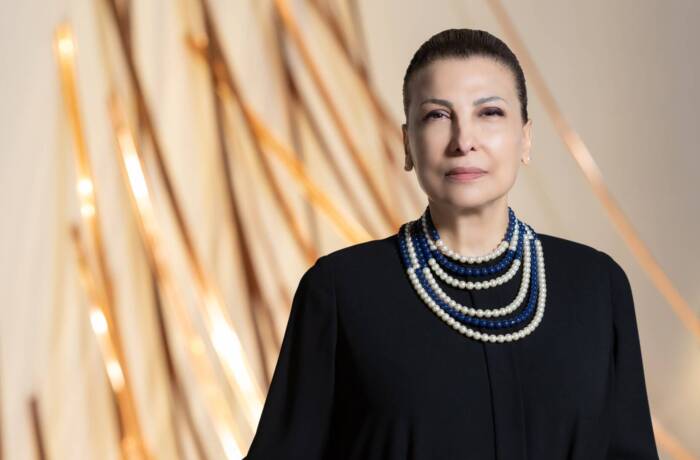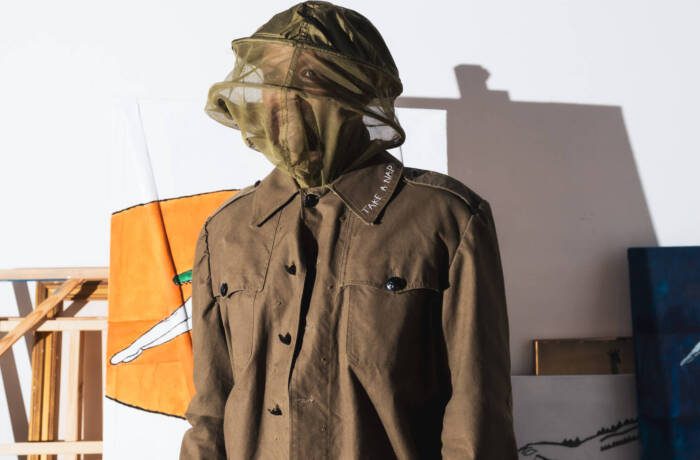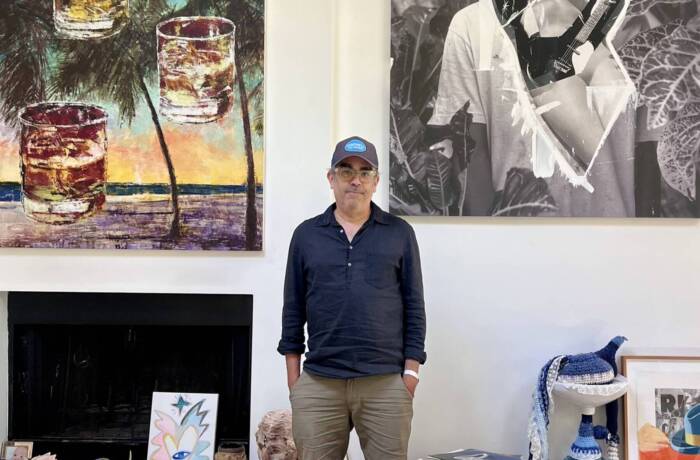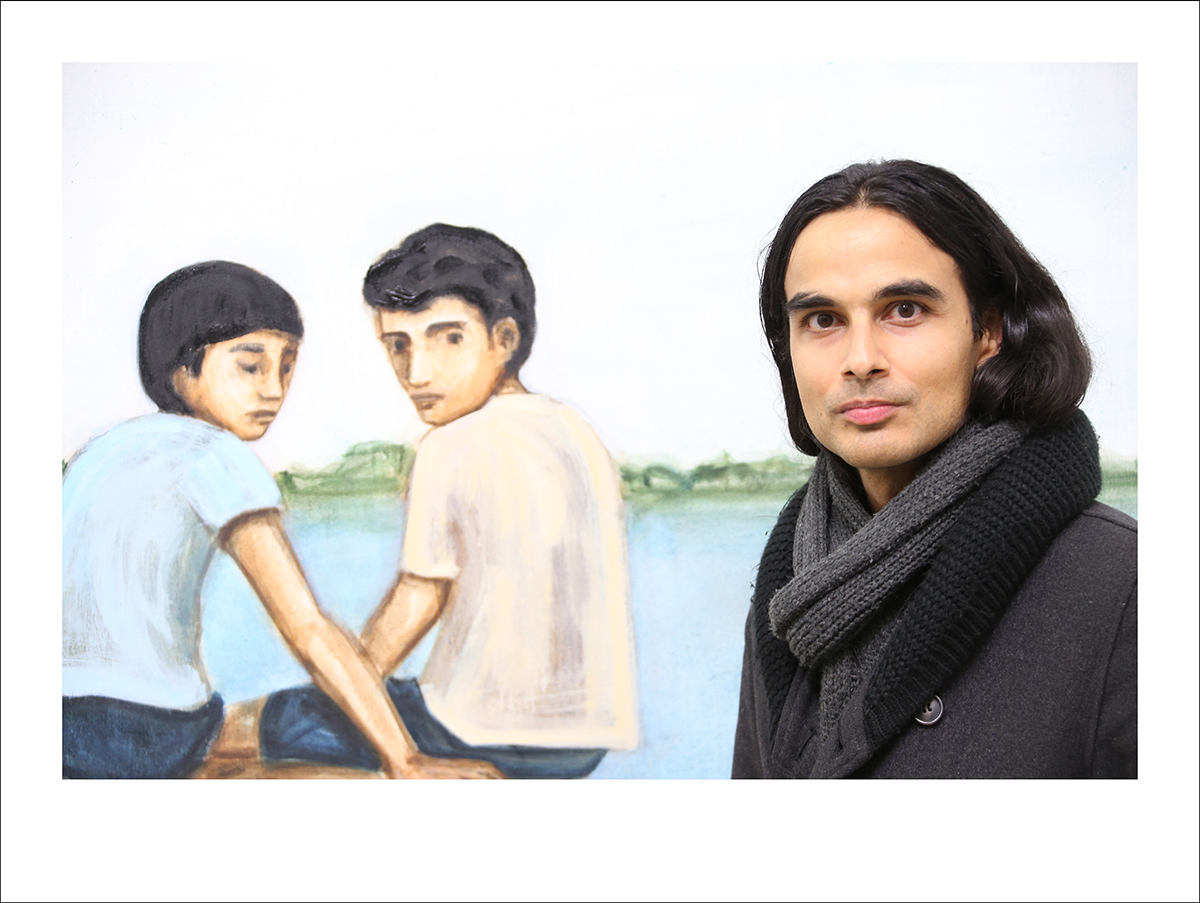
Matthew Krishanu with Riverboat, in 2021. Photograph by Jean-Noël Schramm
British-Indian artist Matthew Krishanu’s paintings offer a nuanced exploration of cultural identity, memory, and personal experience. LUX looks at his works and career through an autobiographical lens
Matthew Krishanu was born in Bradford, England to an Indian mother and a white English father, before moving to Bangladesh where he spent 11 years of his childhood, returning to the UK at age 12. The experience of growing up between two cultures has had a profound impact on his work, which often reflects on the tensions and complexities of cultural identity.
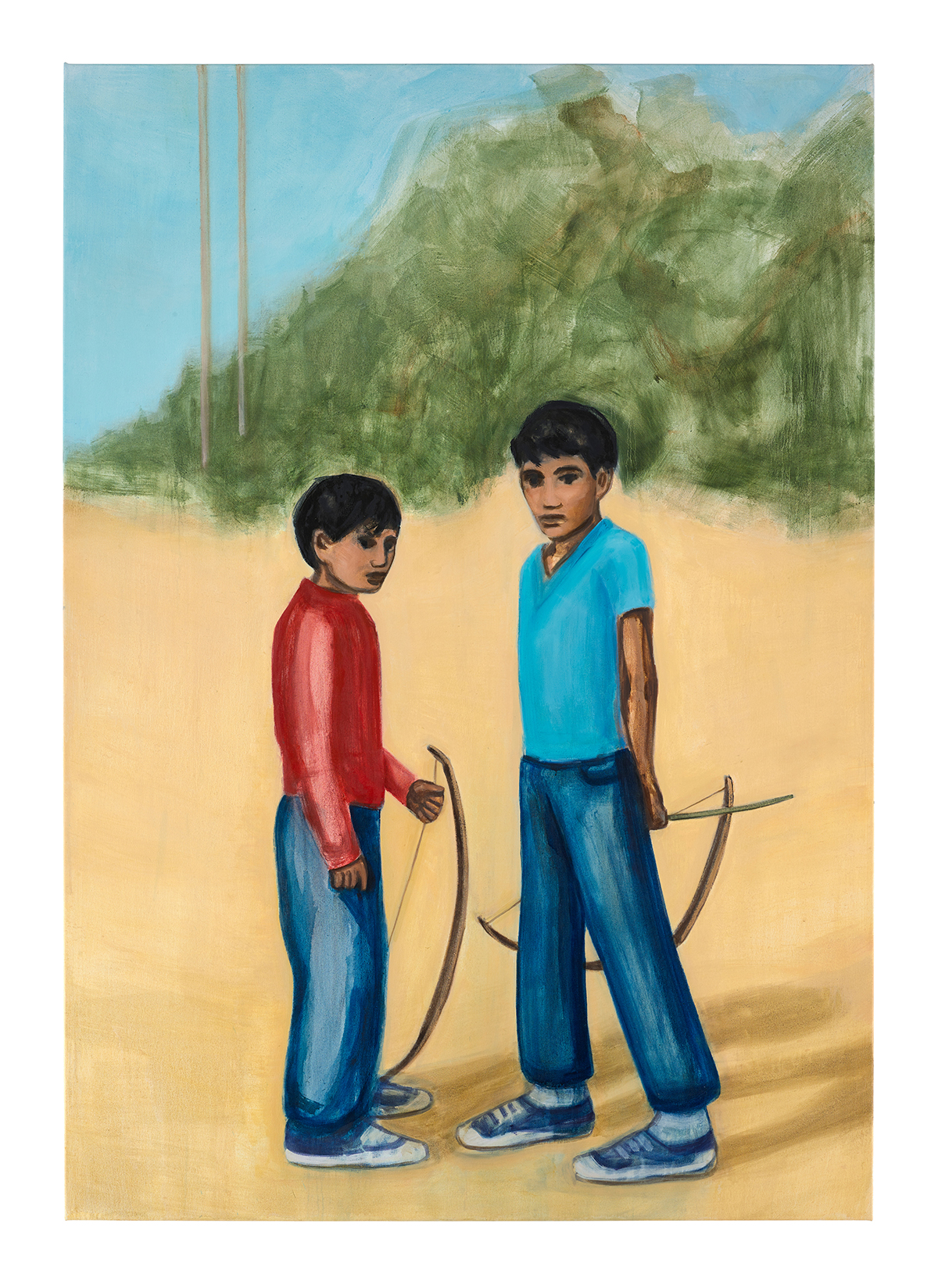
Archers, 2021, part of the Durjoy Bangladesh Foundation. Photograph by Peter Mallet
His figurative paintings have a distinctive flatness, compounded by the use of vivid, block colours and ambiguous, even distant, facial expressions. He explores themes of family and grief, religion and race, childhood and memory, with many of his paintings representing his early years in Bangladesh.
Follow LUX on Instagram: luxthemagazine
For one of his most famous shows, ‘Another Country’ (2014) at the Nunnery Gallery in London, Krishanu worked from old photographs, and his own memories and imagination to reconstruct images from his childhood. The viewer is transported not only to another continent, but to another time, entering the artist’s personal past, remembered landscapes, moments, his relationship with his older brother.
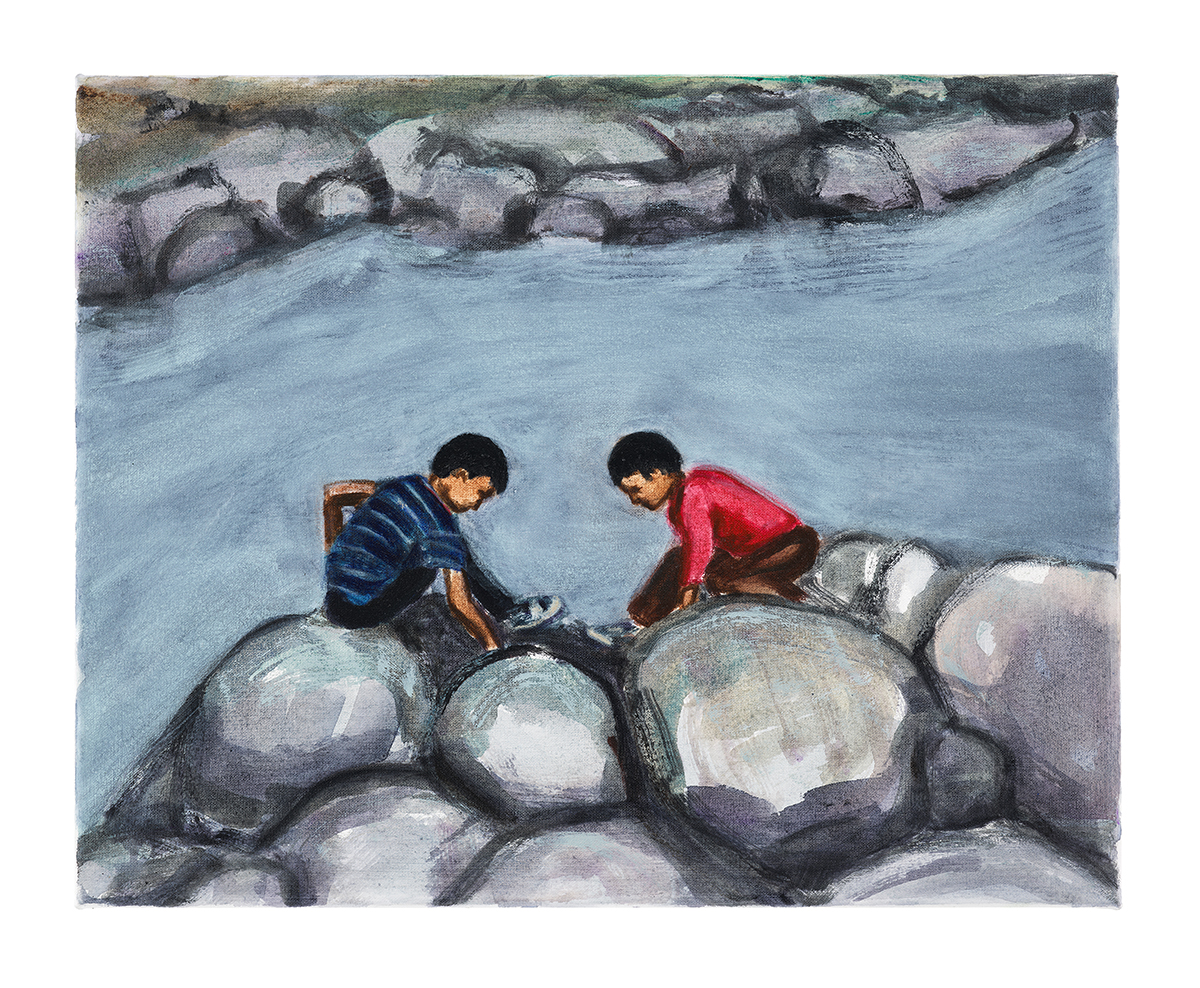
Two Boys on Rocks, 2022, from the series Another Country. Photograph by Peter Mallet
When the artist was asked where feels most like home to him, the UK or Bangladesh, Krishanu responded, ““I have lived in England for over three decades, and London in particular feels like home now. However, the world of the ‘two boys’ (Bangladesh and India) feels like home to them – the places I paint are the home of my childhood.”
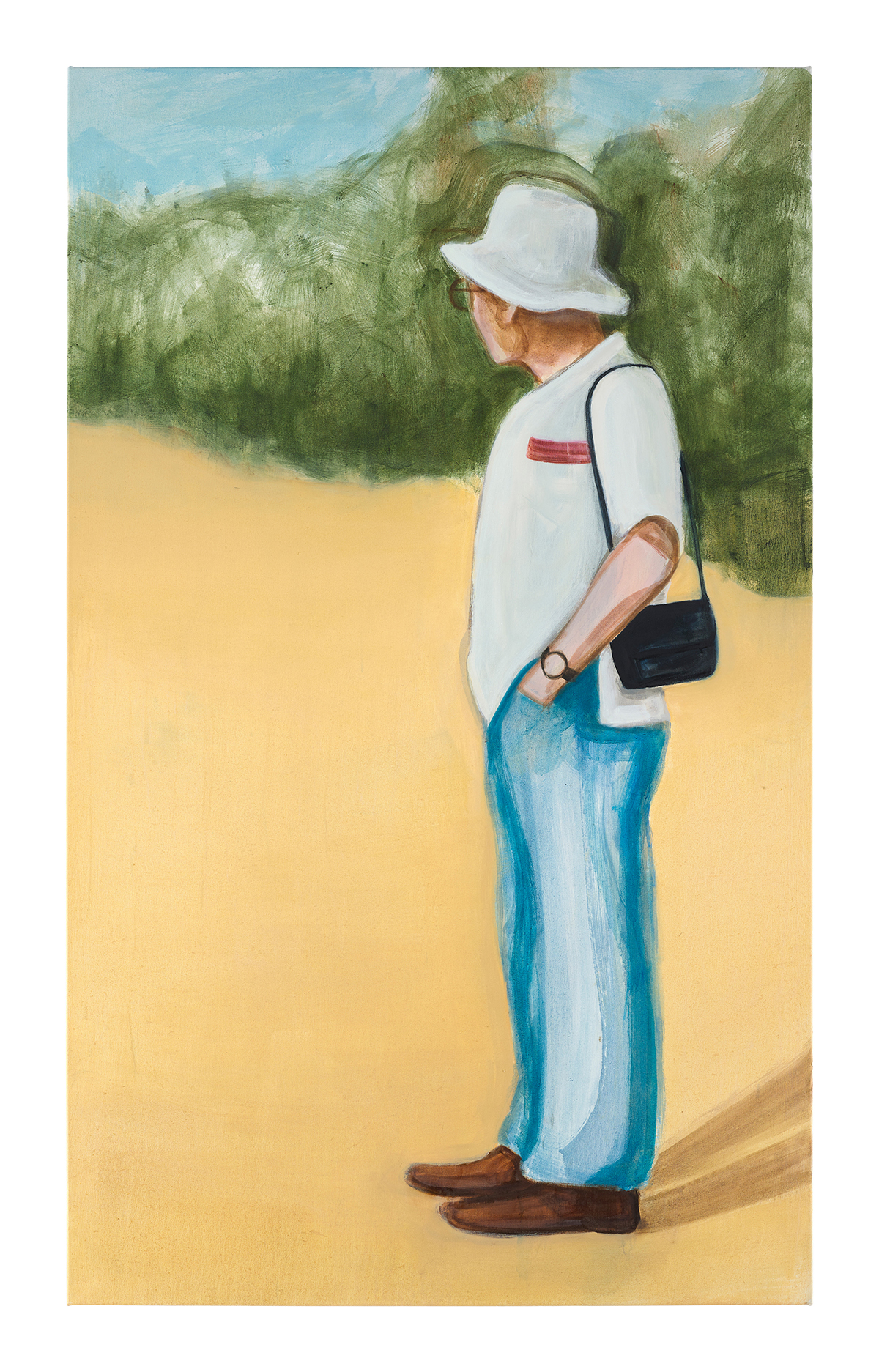
Safari 2021, part of the the Durjoy Bangladesh Foundation. Photography by Peter Mallet
In other works, Krishanu explores faith and religion and this way in which they relate to race and colonial history, a key part of his own personal experience as the son of a Christian missionary in South Asia. Paintings such as “Ordination” (2017) observe unsettling power dynamics relating to complex religious politics of Bangladesh, while in his contribution to Southbank’s ‘Everyday Heroes’ exhibition (2020), he pays tribute to the faith workers from different races and religions and their contributions to their communities during the COVID-19 pandemic.
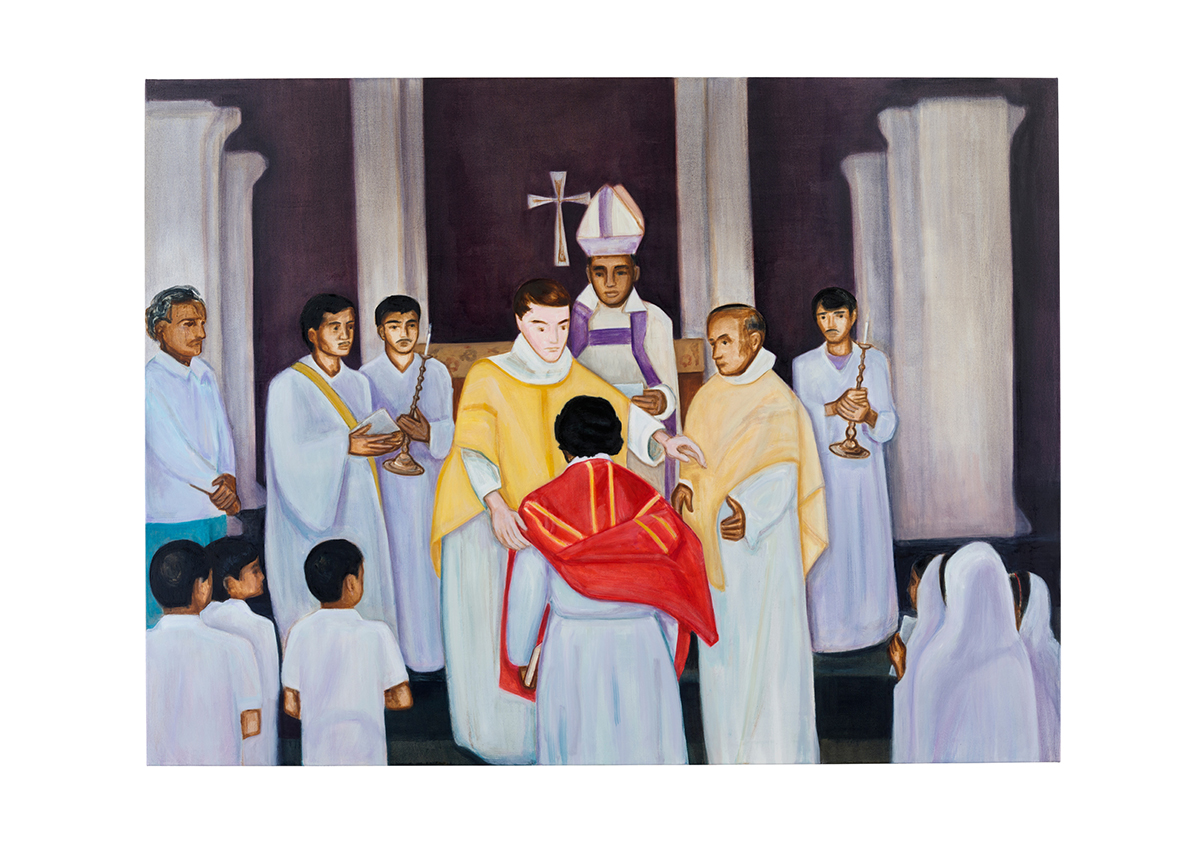
Ordination, 2017, from the series Mission. Photograph by Peter Mallet
In 2021, he exhibited ‘In Sickness and Health’ at Leamington Spa Art Gallery and Museum, a series of profoundly intimate paintings, including several of his late wife at different moments throughout their relationship, and his daughter as a newborn baby. In one painting his wife appears bright-eyed in a wedding dress, while in others she is receiving hospital treatment towards the end of her life. The series acts as a quiet and calm, yet deeply emotional study of not just grief and loss, but the vulnerability and changeability of the human body.
Krishanu explains, “I am interested in how one’s emotional connection to a subject can be communicated in the paint handling, colour, atmosphere and feeling of a painting. It’s something I look for in painters I love – and I feel creates a point of entry for the viewer.”
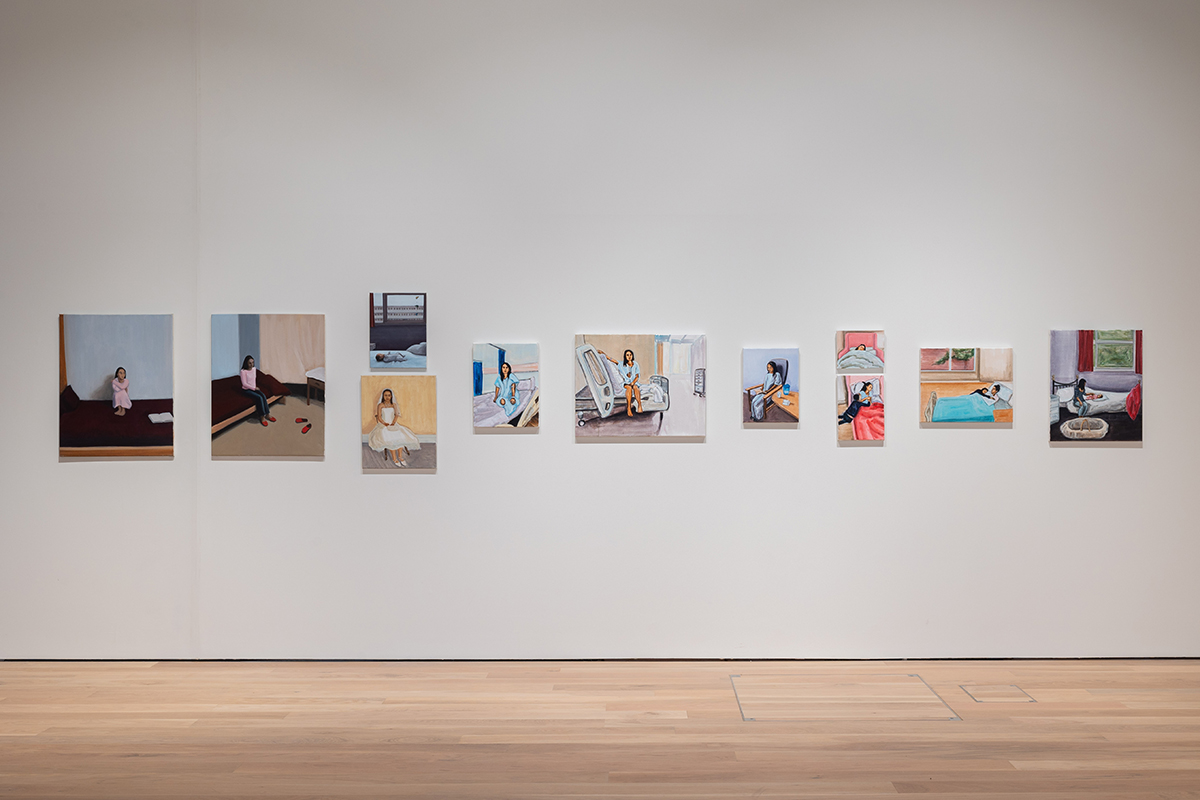
In Sickness and in Health, Mead Gallery, 2022. Photograph by Ed Florance
The artist graduated from the University of Exeter with a BA in Fine Art and English Literature and went on to complete a master’s degree in Fine Art at Central Saint Martins in 2009. Since then, he has exhibited his work in solo and group shows across the UK and internationally, including shows in India, China, Pakistan, Germany and the US.
Read more: Sam Dalrymple and Durjoy Rahman On Cultural Reconnections Post-Partition
His work is included in numerous major collections, including the Arts Council Collection, Birmingham Museum and Art Gallery, Government Art Collection UK, Komechak Art Gallery and the Kiran Nadar Museum of Art..
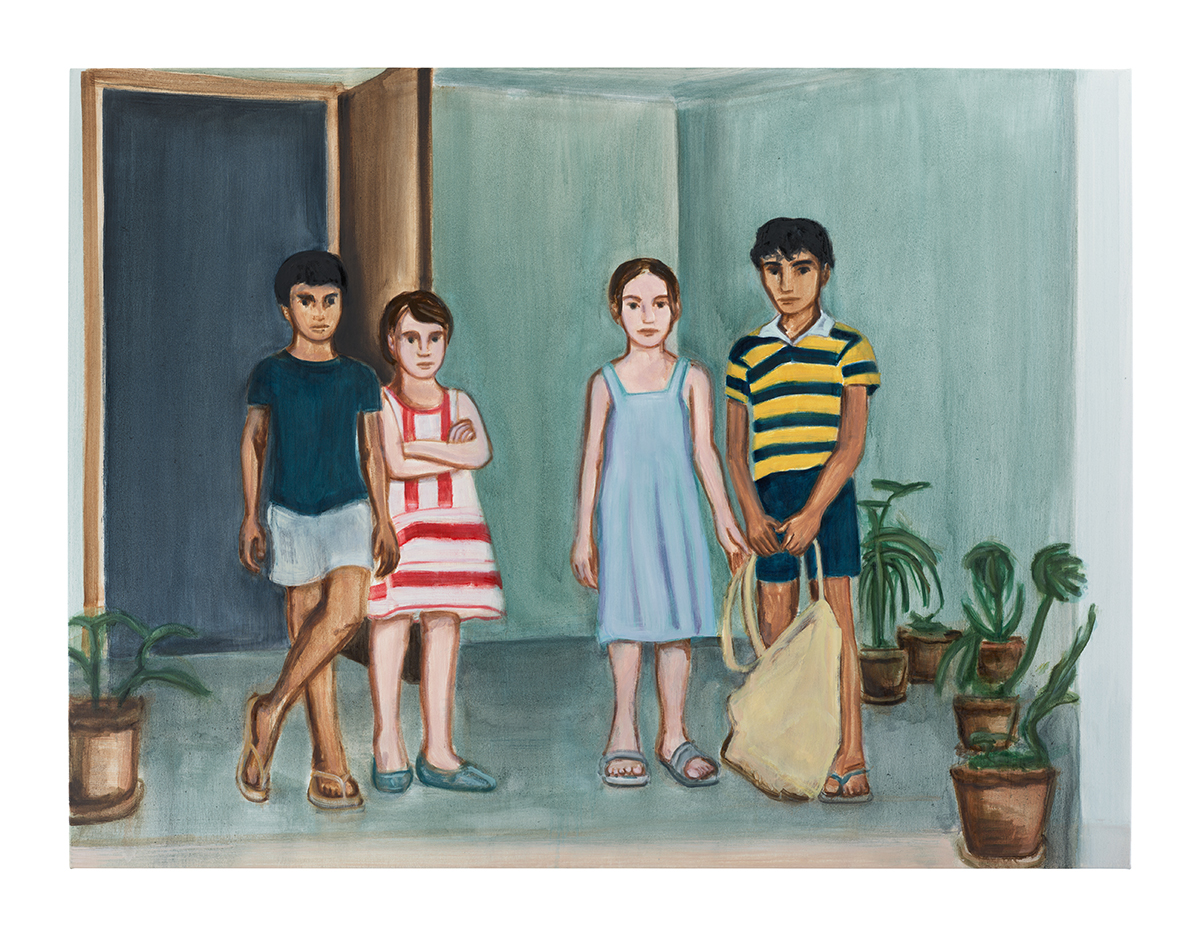
Four Children (Verandah), 2022, from the series Expatriates. Photograph by Peter Mallet
Krishanu continues to invite his readers to share in the rich narratives of his personal and cultural history, as well as their own. His first trade monography was published in March 2023 and features a selection of his works, including ‘Another Country’, ‘Expatriates’, ‘Mission’, ‘House of God’, ‘Religious Workers’ and ‘In Sickness and In Health’.
Find out more:
casematepublishing.co.uk/matthew-krishanu.html
This article was published in association with the Durjoy Bangladesh Foundation

